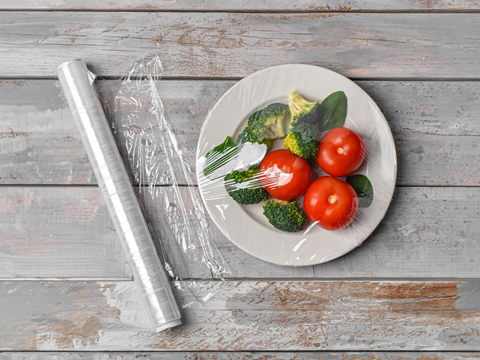
Together with 11 industrial partners, Wageningen University & Research (WUR) is planning to investigate the safety of recycled PE and PP film for use in food contact applications through the new ‘Flex Forward’ research project.
WUR states that plastic packaging promotes food safety, shelf life and is low-cost and lightweight, adding that newly proposed legislation will encourage or even ‘force’ companies to use recycled content in their plastic packages – thus changing how the fast-moving consumer goods and plastic recycling industries operate.
The Flex Forward project aims to evaluate the safety of recycled flexible PE and PP for use in food contact sensitive materials, such as cheese packaging. Apparently, the data generated in the project will allow the industrial parties to evaluate the suitability, safety and performance of the recycled materials, and knowledge of plastic performance evaluation will be combined with the infrastructure for analysis and identification of (un)known food contaminants.
WRU says that project researchers will investigate a specific method of removing contaminants: dissolution (solvent-based recycling). It claims that short-loop recycling technologies like dissolution are considered ‘climate-positive’ and have a high plastic-to-plastic yield. This recycling concept is said to allow the removal of contaminants such as additives.
Reportedly, flexibles represent a significant volume of total plastic food packaging, around 30%. “Most of the recycled flexible PE and PP currently ends in blended polymers suitable for low-value applications only, so a higher quality would be very welcome,” Ingeborg Smeding, project leader at WUR, explains. “Within the Flex Forward consortium we will focus on achieving this in the coming four years.”
WUR was a finalist in our 2023 Sustainability Awards with its smart modified atmosphere packaging for fresh produce, in the pre-commercialized Active & Intelligent category. The university described its entry as a biobased smart polyurethane film with thermal responsiveness and biodegradability, which aimed to cut food waste and extend shelf-life.
In April this year, Berry Global’s flexibles division announced that it had increased its recycling capacity across three of its European recycling facilities, as part of a pan-European project to expand production of its Sustane range of recycled polymers. The expansion project was anticipated to help meet the growing demand for high-performance films made with recycled content.
If you liked this story, you might also enjoy:
How are the top brands progressing on packaging sustainability?
Sustainable Innovation Report 2024: Current trends and future priorities
Reuse vs. single use – which is better for the environment?
The ultimate guide to global plastic sustainability regulation














No comments yet